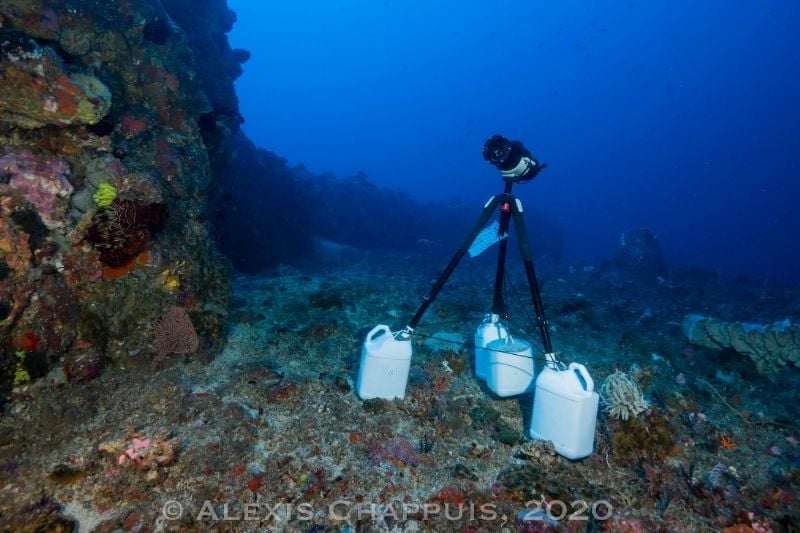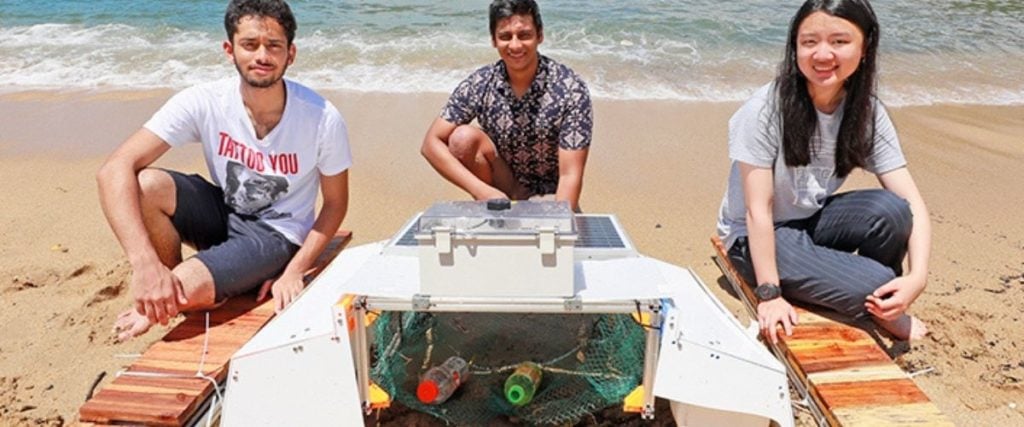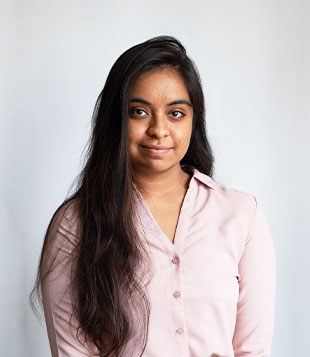TEDx speaker Sidhant Gupta, a serial tech entrepreneur and Guinness World Record setter, talks about how he’s gone from FinTech to robotics, IoT to edutech – and how he’s driven to make an impact.
Sidhant Gupta was just eight years old when he first realised that the average person has an astounding 1900 hours of free time a year. With that much free time on his hands, he thought, why not put it to good use? And so, armed with his newfound ambition and sense of purpose, he set about building India’s smallest bipedal robot, breaking the national record at age 16.
Since then, he’s built ocean trash-collecting robot swarms in Indonesia, IoT-based farming systems in Burma, credit scoring AI software in Hong Kong, intelligent underwater cameras to photograph sharks in the Philippines, braille devices for the blind in Japan, and online education portals in India, among others. He even went on to break a Guinness World Record with his Vayu project, building the world’s fastest robotic fish. Now a serial entrepreneur, he has one goal in mind – to create technology that delivers impact.
Here, we delve into his journey into entrepreneurship, his insights on leveraging technology to make tangible changes, and his thoughts on which sectors stand to gain the most from going autonomous.

What initially drew you towards becoming an entrepreneur?
My parents left their jobs and started their own company before I was even born. So I’ve just always grown up in an environment where having an entrepreneurial mindset was normal – I never grew up expecting to have a 9 to 5 job. I guess I’ve always liked playing around with electronics and coding. Naturally, I had an inclination towards technology and it was only a matter of time before I realised how powerful of a tool disruptive technology can be, especially in terms of bringing about real change.
Which sectors do you think technology would have the greatest potential to change?
Off the top of my mind, I’d say finance. You’re seeing this trend of money becoming increasingly digital. In places like China, we see that the digital transition has become considerably more extensive over the years, and even in emerging economies like India, e-wallets are becoming the norm. Credit cards are getting phased out and there’s been an emergence of virtual banks and insurance companies entering the scene. So I think finance is probably the biggest industry that is set to change, It’s also going to be the most impactful, as it would mean that a lot of people who have never had access to traditional financial services will now finally have the means to enjoy these resources.
The second big one is a sector that I’m currently existing in – the marine sector. The ocean space has gone under the radar for a long time now and I definitely think that there’s a lot of potential for this industry to become automated in the years to come. You’re definitely going to see massive changes over the next few decades. Fisheries have been moving offshore where they’re being farmed as opposed to being fished. The shipping sector is becoming a lot more clean and energy-efficient because they’re starting to recognise the cost advantages associated with this transition. There’s a lot of automation going on across the board and it’s a pretty interesting space to watch out for.
Also, biotechnology has been blowing up recently, so I think the medical sector is going to be a gamechanger. Virtual healthcare has definitely been a disruptive change that has benefitted many and, in terms of accessibility and affordability, we’ve really come a long way. I predict in 10 years or so, we’re going to be seeing some very interesting biotech startups, especially around Asia.
What does your ideation process look like, in terms of starting businesses that create impact?
One of my mentors from when I was at University was very impact-focused and I guess it rubbed off on me as well. After graduating, I thought to myself ‘how can I build companies that are founded on delivering technology-driven changes?’ I personally care a lot about what my businesses are doing and whether the space we’re in is someplace where a legitimate difference is being made.
Hong Kong has a lot of ongoing reclamation projects, and what happens there is, more times than not, a lot of the toxic materials and pollutants end up being chucked into the waters. The worsening of the marine environment is something that the Government has been struggling to keep under control for quite some time now, especially with the rather outdated techniques that are being used to do damage control. And that’s how I came to start ClearBot, which are fully autonomous, solar-powered, AI robots that operate as a swarm to detect and collect trash from large bodies of water – helping our oceans stay as plastic-free as possible. We’re currently in the process of doing a pilot with a land reclamation company here to show how the robots could be a much simpler, cheaper, and more sustainable solution to the problem.
But of course, I still come from an Asian business background, which is very money-oriented. So when I try to come up with business ideas, there’s definitely a profitability aspect involved. We sell these robots to researchers and universities across Asia Pacific. We also try and tie up with corporations that are looking to hit their neutrality goals. Currently, we’re working with an American plastic credit company that pays us for every kilo of trash we remove from the water. Having mechanisms like this helps us remain financially comfortable.
So essentially, I start off by looking for opportunities where there is a serious social or environmental problem that I can potentially solve by integrating technology into the equation. Then, I ensure it can be done profitably and sustainably from a financial standpoint, and how I can leverage the technology to minimise my costs.
What were the biggest challenges you faced in actualising these ideas?
Fundraising. Definitely, fundraising. I literally just got out of college, so financial stability means a lot to me – being able to recruit a team, being able to sustain the business for your team, it’s a big factor. One of my initial concerns was the possibility that we might only have a runway of say, three months. You’re hiring people but you’re not able to guarantee them job security because that’s how unpredictable this line of business can be, especially as a newbie.
So in that way, I think that one of our biggest wins was overcoming that challenge fairly early into our startup’s inception. We were eligible for grants, we had an angel syndicate working with us, and now we’re due to raise another round with a venture capital. This really helped stabilise our fundamentals and set up the right systems so that we could scale them in the long term.
Apart from that, we have the standard product issues that crop up from time to time. There have been times when we’ve shipped the robots out and something goes wrong after the customer has received the shipment. Obviously, there’s very little you can do about that but learn from it and get over it.
What piece of advice would you give 16-year old you, fresh off a national record-setting achievement?
To take a little break from building robots and go on more dates.

You spoke at TEDxCityUHongKong about becoming a time lord. What advice do you have on “wasting time wisely”?
I mean, honestly, it’s not such a bad thing to waste time – as long as you remember to be conscious of it. To reiterate what I said in my Ted Talk, it is possible to achieve your goals by simply wasting time.
Have an aim as to how you plan to spend, rather, waste your time. It could be anything but you’ve got to be ok with how you choose to waste your time. Sometimes, I have people tell me “Oh, I wish I had more time”, when they’re actually just spending that time on things they don’t really care about and that doesn’t benefit anyone.
What’s next?
I think we’re pretty much just focused on growing the businesses now. Obviously COVID has had an impact on our operations, and we’re just focusing on working around that. A few of our pilots have been put on hold and our supply chain has been slowed down too, but luckily we’re in Hong Kong and our offices are still open. Most of these businesses are still phase one startups, so it really depends on how our fundraising series this year works out and we’ll see how to proceed from there.
More about Sidhant Gupta
Sidhant Gupta is currently leading 3 businesses – Clearbot, an award-winning invention that collects trash from oceans; Open Ocean Camera, a more cost-efficient and advanced approach to deep sea monitoring; and OSREI, an education initiative that delivers open source learning materials to underprivileged children in Kenya and other parts of Southeast Asia. Through his innovation and technologies, he hopes to create impact across the board, especially in the fields of marine conservation and education.
Related Articles
This Ex-Microsoft Software Engineer Helped 1,500,000 People Learn Cloud Computing






